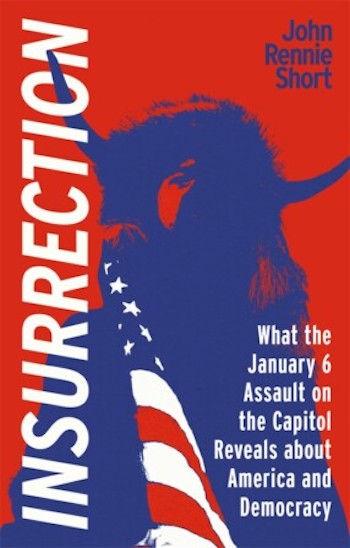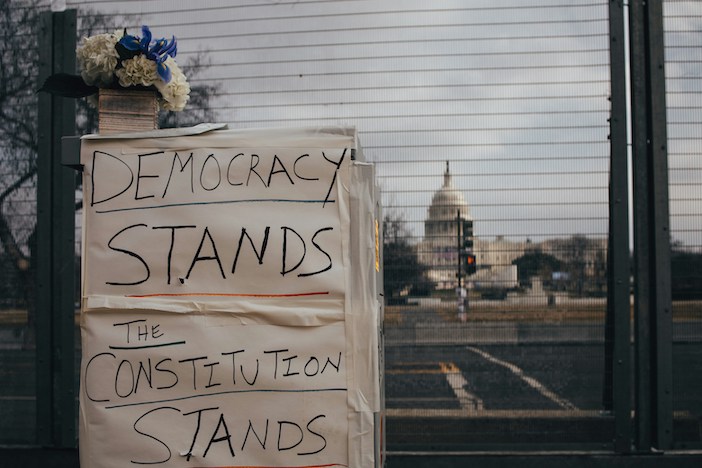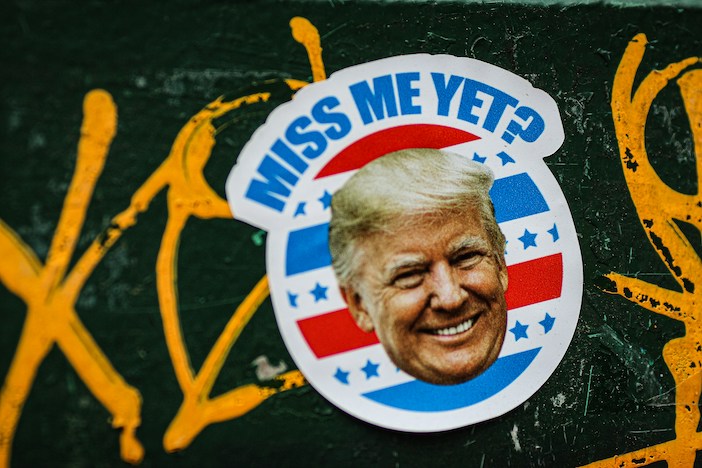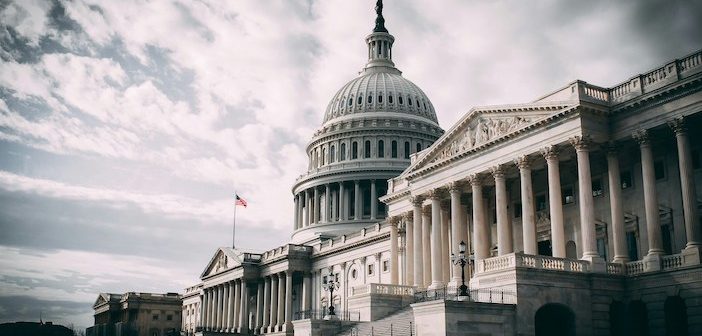The American Presidential election campaign of 2024 is well underway. The primary election phase of the campaign, often the most interesting, when Democrats and Republicans chose their candidates for the presidency, was over before it had hardly begun with no serious challenges to the two principal candidates. Barring some unexpected and unlikely political earthquake, perhaps starting in New York courtroom, a deeply divided United States is faced with a choice between the same two geriatrics as last time – Biden and Trump. One of them, Biden, a visibly aging party machine politician from inside the Washington beltway; the other, Trump, a political insurgent from outside politics who does not play by the usual rules.
The previous election between these two candidates ended in the Trump encouraged invasion of Capitol Hill and his attempts to persuade some officials to help overturn the election result. In this, Trump was breaking one of the fundamental principles underlying any working democracy, that of loser’s consent. Professor Rennie Short, originally from Scotland but currently Professor Emeritus of Geography and Public Policy at the University of Maryland, has used these shocking events as the starting point for an analysis of the current state of American politics in his latest book Insurrection: What the January 6 Assault on the Capitol Reveals about America and Democracy.

Two-thirds of Professor Short’s book is taken up with a measured analysis of the weaknesses in the American political system and the changes in American politics and society that lay behind the events of 6th January 2021. In the remaining third he then turns to the events themselves, their immediate background, and what he sees as their significance. Despite the political divisions of current US politics, the bitter controversy that continues to surround the events of 6th January 2021 and their central protagonist, Professor Short manages, for the most part, to maintain a balanced approach and avoid being openly partisan.
While his book may not provide much that is new for the dedicated aficionado of American politics – much of the ground covered has been well trodden elsewhere – for the general reader the Professor has produced a well-written, well-structured, interesting, and informative tour d’horizon. He ranges from the increasing lack of trust in government, flaws in the electoral system, weaknesses in the constitution and the growing influence of conspiracy theories to the impact of demographic change, globalisation, deindustrialisation and social and cultural change on the political landscape of the United States. Not only based on an extensive range of sources he also puts most of his key points into their historical context. The latter is most effective when he is identifying flaws in the constitutional and electoral structures inherited from the Founding Fathers; structures that were designed for a small, ethnically cohesive, mostly rural population and not the mass, ethnically diverse, mostly urban population of modern America.
The Professor regards the Electoral College system for electing the President as increasingly anti-democratic given it resulted in Bush in 2000 and Trump in 2016 being elected as President without a majority of the popular vote. Normal service was resumed in the 2020 election of President Biden. Taking a longer view, of the 59 presidential elections only five have seen a President elected without a majority of the popular vote. The other three occasions all happened in the 19th Century, of which the most unusual was in 1824 when there were four candidates up for election, none of whom secured a majority either of the popular vote or of the electors in the Electoral College. The impasse was resolved after much backstairs politicking by a vote in the House of Representatives which gave the presidency to John Quincy Adams over Andrew Jackson who had received 10% more of the popular vote.
 Professor Short is correct in pointing out this flaw in the system: the political loyalties of the electors do not always accurately reflect the popular vote. He is also correct in pointing out that when the electoral race is tight the votes in the large ‘swing states’ carry more weight. Unfortunately, he fails to mention the other key factor: the number of electors per state is not completely proportional to their population because every state, regardless of its population, has an additional two electors just as it has two Senators in Congress.
Professor Short is correct in pointing out this flaw in the system: the political loyalties of the electors do not always accurately reflect the popular vote. He is also correct in pointing out that when the electoral race is tight the votes in the large ‘swing states’ carry more weight. Unfortunately, he fails to mention the other key factor: the number of electors per state is not completely proportional to their population because every state, regardless of its population, has an additional two electors just as it has two Senators in Congress.
This means that voters in smaller states get more electors per vote than in states with larger populations. Wyoming with a total population of some 570,000 has one Representative by population but three electors whereas in California it takes 700,000 per elector to secure 52 of its 54 members of the Electoral College. The existence of the Electoral College has been debated ever since it was established. Since the early 1800s some 700 different proposals to reform or remove the College have been put before Congress. It was almost removed in the late 1960s and its existence continues to remain a matter of debate.
Given the deep-seated American obsession with conspiracy and the sense of outrage, for whatever reason, that is often its companion, it is apposite that Professor Short gives it a whole chapter. He sees the roots of this in the early years of the new republic when the unity that existed during the presidency of George Washington started to fracture as political divisions deepened, political debate became more personal and the loyalty of political opponents to the new republic questioned.

As Professor Short points out, Thomas Jefferson came under bitter attack from the Federalists when he was President and was accused of being a member of all sorts of secret societies, of being in league with the French and of plotting the downfall of democracy. Turning to 2024, what rightly concerns Professor Short is the energy that the internet, social media and cable news channels can put behind both conspiracy and outrage. One of the consequences of the current divisions in American society is to see conspiracy theories start to move from the peripheries of political discourse into the mainstream. The arrival of AI is likely to increase their impact, not just on political discourse and elections but also on the attraction of violence for those in the extremist fringes whether of Left or Right.
 The 2020 Election may have restored normal service in the sense that the candidate with the most votes was elected as president. The result was not close, Biden received over 7 million more votes than Trump. However, what followed was not normal. Trump refused to accept the result and proceeded to try to both undermine its legitimacy and overturn it. The latter failed but the former remains damaged goods in the eye of many. Professor Short provides a clear and detailed description of the shocking events that took place. He describes the various attempts to delegitimise and overturn the result, via legal processes or pressure on officials, as a coup.
The 2020 Election may have restored normal service in the sense that the candidate with the most votes was elected as president. The result was not close, Biden received over 7 million more votes than Trump. However, what followed was not normal. Trump refused to accept the result and proceeded to try to both undermine its legitimacy and overturn it. The latter failed but the former remains damaged goods in the eye of many. Professor Short provides a clear and detailed description of the shocking events that took place. He describes the various attempts to delegitimise and overturn the result, via legal processes or pressure on officials, as a coup.
However, what emerges from his description hardly deserves the name. It was shambolic, disorganised, appeared to lack any coherent plan and was without support from any of the forces of the state. Thankfully, it was up against a well-established de-centralised system that, for all its blemishes, was run by officials who believed in the fundamental integrity of the election they had run.
Professor Short’s description of the invasion of the Capitol on the 6th January exposes the extent to which Trump’s behaviour had a significant influence on what happened and for which he deserves to be held to account. However, to call it an insurrection is somewhat of an overstatement. There was little real violence and most of those who entered the Capitol seemed to be shocked they had got in so easily and mostly ended up wandering about in a somewhat aimless fashion until they were expelled. Disgraceful though it was, it was hardly the storming of the Bastille or the Winter Palace, let alone the outbreak of the Paris Commune.

What these events and their aftermath did show was how deep the divides are in US politics, the extent to which the Republican Party has become embroiled in the Trump project and the increasing influence of so-called ‘fake news’. The system stood firm and came through the crisis but further damage was done to its legitimacy. For Professor Short the US is now not far from facing an existential political crisis. Time will only tell whether he is correct. He goes on to suggest that the UK faces its own existential political crisis. He does not explain why beyond drawing attention to the fact that we have an unelected Prime Minister – though this is neither constitutionally improper nor unusual. Rishi Sunak, the 29thPrime Minister since 1902 is the 18th to have been appointed from within the largest party in Parliament without a general election.
It is well worthwhile reading this book in this election year, not least because it identifies the threats that face democracy in the United States, some of which are starting to develop here. That said, care needs to be taken in applying the American experience to the UK like a template. Their political system is so very different both in structure and in the extent to which money talks. Two threats that have damaged US politics and which are already present here are the Beltway bubble (as in Westminster bubble) and the increasing disconnect between the political, financial, and educational elite and the average voter. They are probably the main reasons for the continuing success of Trump, the political insurgent – court cases notwithstanding – and his continued prominence despite the events of the 6th January 2021.
Insurrection: What the January 6th Assault on the Capitol Reveals about America and Democracy, by John Rennie Short is out now, publishing by Reaktion Books.
Photos courtesy of Unsplash




